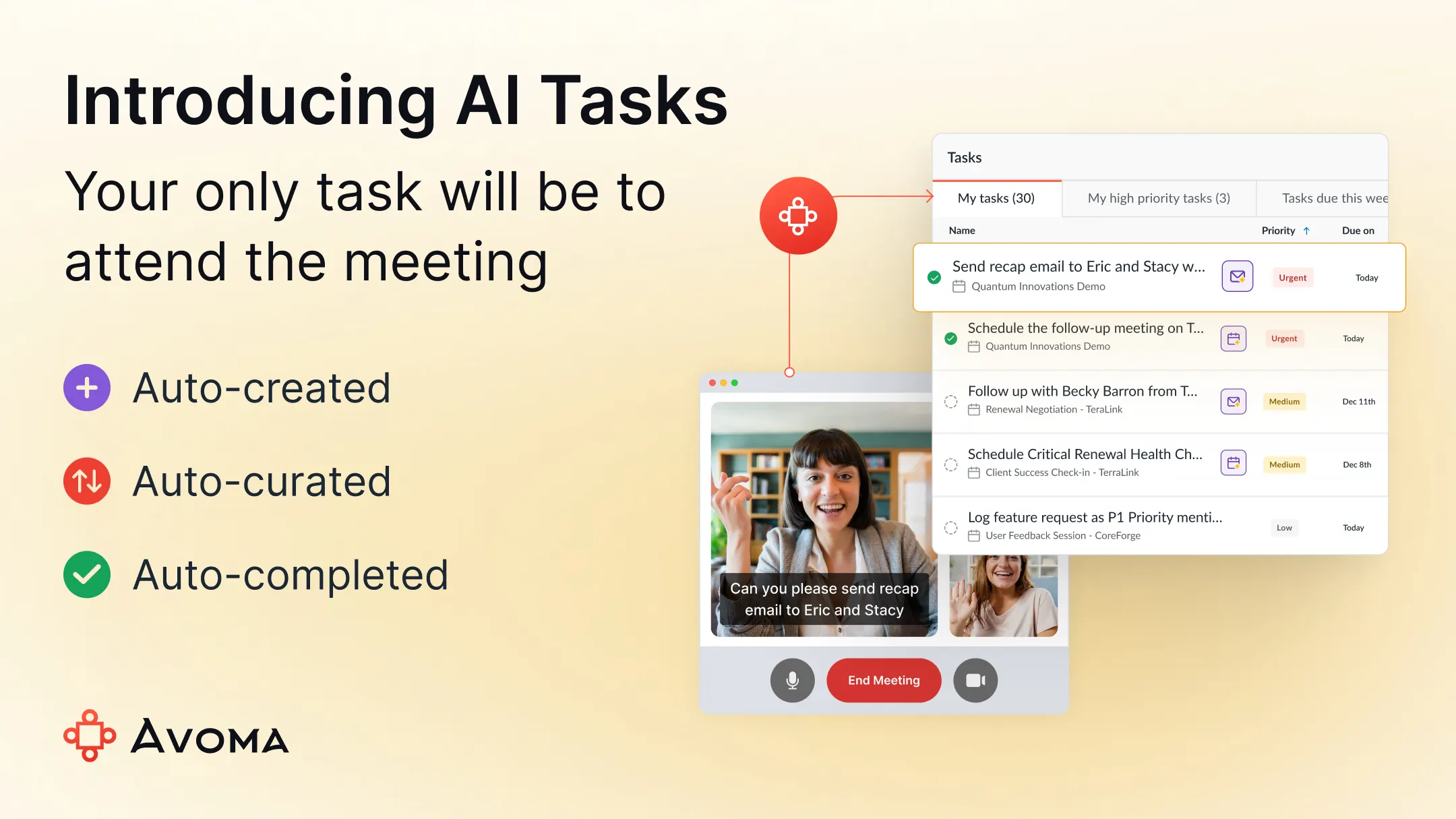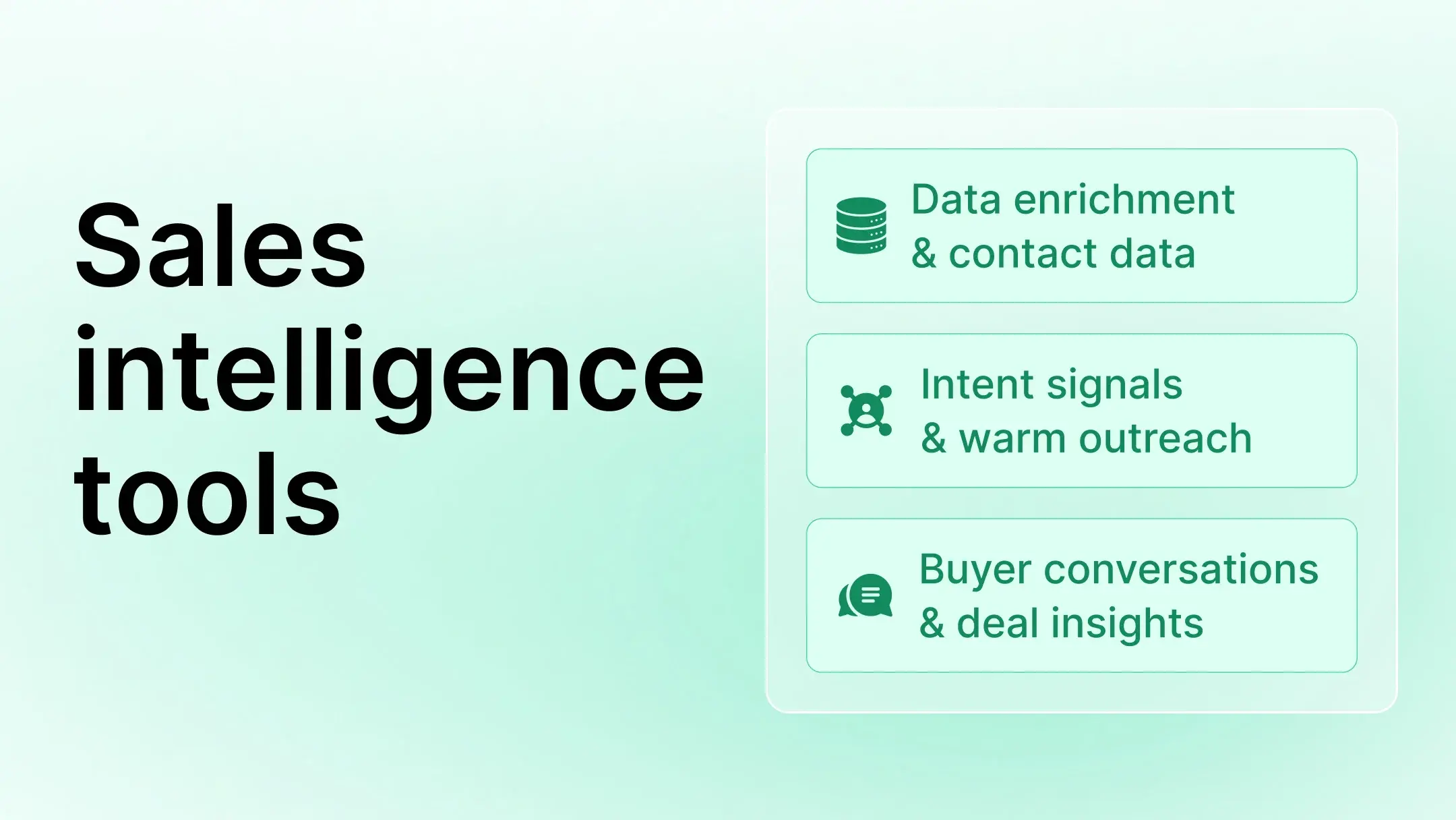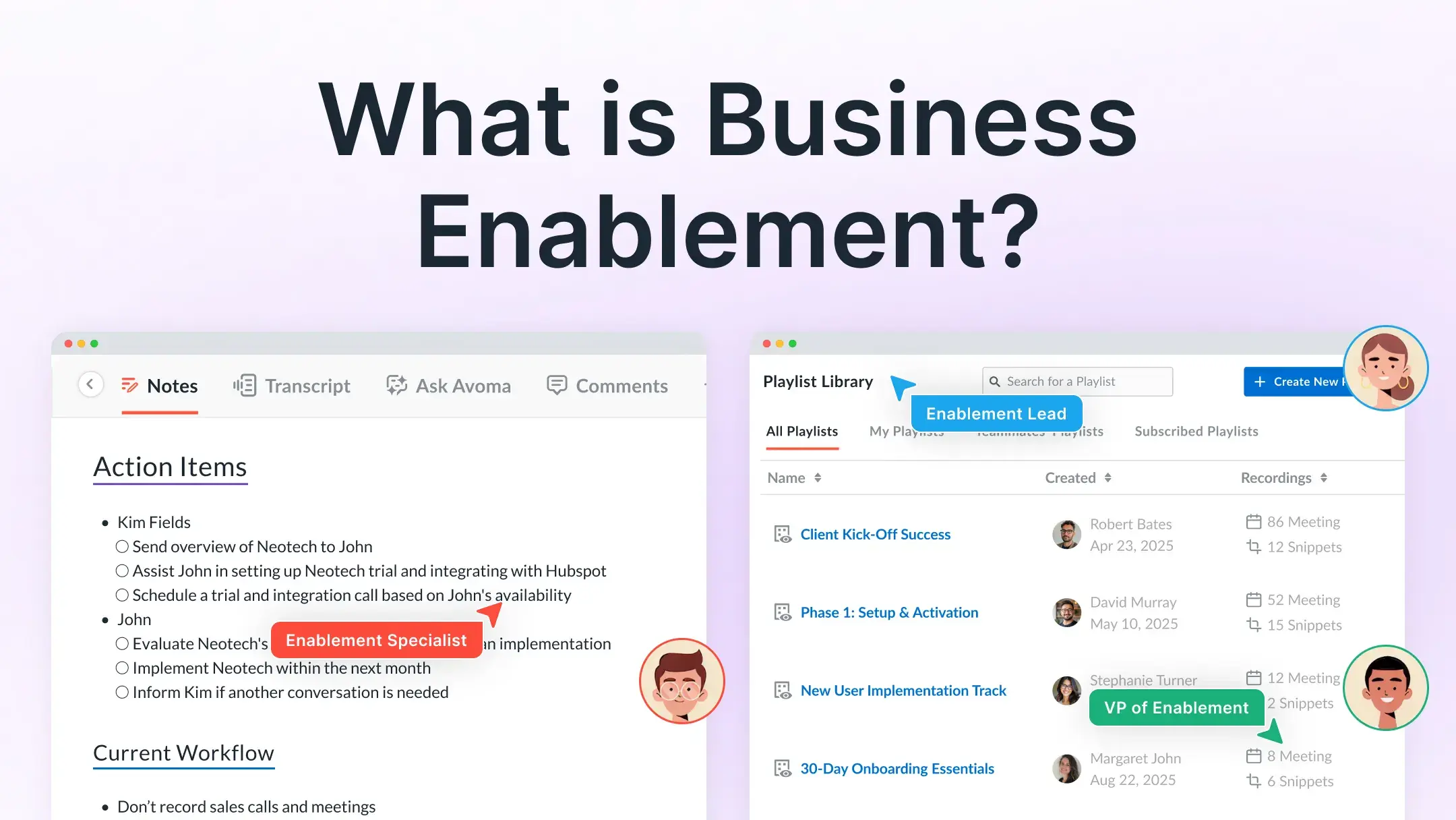How Sales Call Recordings and AI Can Improve Your Deal Win Rate
Table of Contents:

You can’t improve what you don’t measure. Every call and meeting with a lead is a gold mine of information—information that’s either captured or not.
Top-performing sales leaders differentiate themselves by creating time and efficiencies around listening to sales recordings for coachable insights. Instead of assuming they have no time or that their team is too small, they lean into technology to adapt faster than their competitors.
However, not all call recording tools make this as easy as sales leaders need.
Do Recorded Sales Calls Improve Deal Win Rates?
This is more of a rhetorical question than anything. But if you’re not convinced of the power buried inside call records, here’s how they can work for you.
1. Capture Every Detail with Stress-Free Recordings and Notes
Reps need to jot down plenty of things when speaking with a prospect. Their main job is to ask penetrating questions. The answers to those questions can affect the outcome of the whole opportunity.
But no prospect makes it easy on them. They speak their mind as objections and pain points come to them—often all at once.
As your team is jotting something down, the prospect says another thing worth adding to the notes. It’s impossible to catch every detail, no matter how consequential each is. Your sales team is constantly struggling with this.
Recorded calls take the pressure off of sales teams. They can focus on being present while intelligent technology records their meetings, takes meaningful notes, and catches insights. Being present in those conversations allows them to do what they are relied on to do—communicate the perfect solution and close the deal.
The best call-recording software removes the need to manually write notes and will automatically connect to your calls/meetings, so they don’t have to think twice about these easily automated tasks.
2. Streamline Sales Enablement and Training
Successful sales teams aren’t made overnight. They’re created. Built on hard data and teachable moments. The only way to have those data points and create more teachable moments is through recording your team’s sales calls.
All the key moments of a sale happen on the phone. That means 90% of sales coaching will focus on the sales approaches used on those calls. No recordings mean no visibility into what went on during those crucial moments.
Managers need a way to have eyes and ears on every rep’s calls. Accessing those phone conversations and meeting transcripts helps determine if sales reps stuck to the agenda, positioned the product effectively, and asked the right questions.
With visibility and enablement training, poor sales pitches and calls steadily improve. Newer reps get onboarded quickly and are more likely to hit quota faster. Deals move through the pipeline faster. Good things start happening.
But nothing happens by accident. Staying theoretical is the slowest way to teach hard skills. Instead:
- Use your one-on-ones to play back snippets of phone calls and give direct feedback about the actual sales conversations they’ve had.
- Create playlists of exemplary calls where the sales rep did all the right things.
- Nurture a culture of success by knowing (and communicating) winning playbooks.
Managers should use AI-generated sales scorecards to find the best and worst calls quickly. This makes timely coaching sessions more manageable than ever by providing at-a-glance conversation insights for managers. Scores can also be abstracted to track team-wide performance and find the biggest opportunities for sales process changes and coaching.
3. Improve Cross-Functional Communication
No one function within a business exists on an island alone. Product affects marketing initiatives and direction. Marketing and demand generation change the landscape for sales teams. And so on.
Compared with marketing and product teams, sales teams uniquely have exposure to ideal profiles who either become customers or lost deals. Other functions need to know the experiences sales teams have to create the tightest market fit. Knowing what contributes to closed-won or closed-lost is a business-wide imperative.
If marketers knew the objections and pain points that on-the-ground sales reps sold against, they could better position the company and product in marketing campaigns.
If engineering routinely heard from skeptical buyers about what they actually need, they could align the product roadmap with market expectations.
In most companies, information doesn’t travel around easily. Intentionality is important if all the necessary teams are to get VOC (voice of the customer) data.
Sales calls should routinely be added to playlists for other teams. Ideally, the most salient portions of the calls would be broken down into snippets for fast access to customer insights.
Automated alerts can also be set up to track specific verbal triggers in meetings. That way, information is disseminated as it is captured. AI notes can also track custom topics important to your business, like the most requested features by leads, and share those routinely with product teams.
These help create a customer-first mindset throughout the organization with an easy-to-manage VOC (voice of the customer) initiative.
The Problem with Recording Sales Calls
How long is the average call with a lead in your department? 25 minutes? 40? An hour? And how many of those pile up per week across your function?
The trouble with recording lead conversations is that no one has the time to review them all.
Only 1% of team calls are ever reviewed, likely because managers don’t know where to start. We all know there’s a wealth of information in those calls.
Determining the priority for listening to calls makes all the difference. No one could possibly target the most urgent calls without better technology.
Avoma gives sales leaders confidence that they are focusing their efforts in meaningful directions. Automatically recorded calls with AI-generated notes and revenue-driving insights will do that.
How to Get Started with Sales Call Recording
Sales teams looking for advanced sales automation and effortless insights need something better. Manual workflows and spending countless hours on tasks don’t work. Sales teams need intelligent technology that works alongside each team member.
Auto Meeting Recorder with AI Transcription and Call Notes
Pick a sales call recorder that integrates with your specific calendar, video conferencing platform, dialer, and CRM. These make things easier for you no matter how sales meetings occur.
Once joined, it ought to start taking notes and transcribing the meeting. This allows reps to focus on the conversation and not worry about creating properly formatted notes.

Notes should be automatically formatted and categorized under smart categories for skimmable reading. Automatically populated note categories let stakeholders see key takeaways, buyer pain points, and action items quickly.
With Avoma’s call templates, AI knows what to listen to, so notes are populated with specific information that’s important for each type of call. This can include mentions of particular competitors, feature expectations, or dealbreakers mentioned on the call. You can also create custom note categories to train the AI to catch things specific to your business.

After you hang up, call details should automatically be pushed to your CRM. Avoma easily maps note categories to CRM fields and picklists, so everything stays updated for sales team members without extra work.
Managers and salespeople can easily navigate key moments in recorded calls using bookmarks labeled by the topic being discussed. These make it so that managers are more likely to listen to more calls. It highlights each part of a call so managers can find the most important parts. Anyone can get to the meat without wasting time in other parts of the call.
Turn Recordings into Shareable Insights for the Whole Team
Call recordings = actionable insight. Avoma makes this as easy as Sunday morning by recording each call, transcribing what was said, and generating intelligent notes.
Turning any recorded call into a snippet or part of a playlist for sharing important details across your business is easy. Select the snippet duration and send it out via a link or connected app (like Slack).

Your team should be able to access complete call histories, notes, and synced transcripts for every sales call directly from your CRM. Avoma shares conversation insights into what is happening across all customer-facing interactions with its dashboards and also syncs any detail you need with your CRM.
Avoma’s activity dashboards parse through key details and metrics to show first-order call insights. These dashboards surface the overall health of all sales calls. Easily filter calls by high/low performers, deal stage, number of conversations, time spent in calls (per account), and more.

Avoma helps organizations capture, annotate, and share sales insights so teams can move deals faster and with better outcomes.
From Call Insights to Pipeline Forecasting
Every call is filled with information that should be out in the open. Most call recording platforms stop at recording and transcription. Avoma brings insights from individual calls to the surface. AI scorecards quickly shorten the sales cycle because they offer 100% call coverage and allow for targeted coaching to happen in the moment.
Avoma activity dashboards for individual team members show managers what is working and what is not. Easily drill down into top performers and dissect conversation topics that lead to their success. Find quick wins and larger training opportunities for lower performers.

Avoma helps visualize the entire sales pipeline with no missing details. Watch deals as they progress through deal stages or track activity to ensure no deal stalls from lack of reach out.
Avoma’s deal health alerts help increase deal win rates by analyzing buyer engagement, sentiment, deal activity, deal value, and other data points so no winnable deal slips through the cracks. Data from recorded calls and other interactions are automatically pulled into the equation.

Predictive AI models built by Avoma help you forecast the revenue sitting in the pipeline. This helps focus attention on the most likely to close deals. High-risk accounts are easily spotted so stakeholders can figure out a winning solution.
Simplify Call Recording with Avoma’s AI Conversation Intelligence
It’s hard to imagine so much value being automatically and continuously mined from recorded calls. It’s only so because most sales teams rely on manual note-taking and team-guided pipeline reviews. Of course, it’s impossible to extract deep insights from manual workflows that are prone to human error and bias.
Avoma is built for agile sales teams willing to learn the real story from every interaction—whether from their own calls or another team member’s. Everything is actionable if it is recorded and analyzed.
Improve sales team efficiency, manager coaching outcomes, and cross-functional VOC with a unified sales platform that integrates deeply with your CRM.
Frequently Asked Questions






What's stopping you from turning every conversation into actionable insights?










